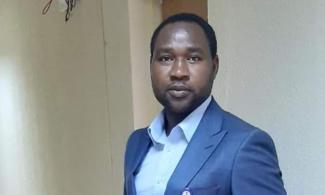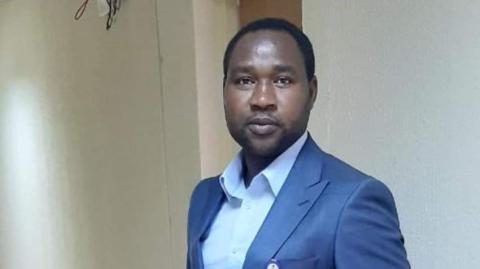
Bala, a 37-year-old President of the Humanist Association of Nigeria, was jailed on Tuesday.
A human rights lawyer, Mbasekei Obono, has asked the National Assembly to remove sections of the states’ criminal and penal codes that outlaw blasphemy.
Obono made the appeal following the sentencing of one Mubarak Bala, an atheist, by a court in Kano for making a post on Facebook considered to be blasphemous against Islam and Prophet Mohammed (SAW).

Bala, a 37-year-old President of the Humanist Association of Nigeria, was jailed on Tuesday (April 6) by the court after pleading guilty to all 18 charges and asking for leniency.
He has been in detention since 2020 after a group of Muslims filed a petition to the authorities accusing Bala of posting uncomplimentary messages about Islam and the Prophet Mohammed on Social Media.
Obono in a petition to the lawmakers said the growing trend of sentencing young Nigerians under the pretext of blasphemy must be discontinued.
He said several others have been sentenced using the same pretext. He said those sentenced were merely exercising their rights to the freedom of thought and religion.
“Omar Farouq who was 13, was sentenced to 10 years imprisonment for blasphemy in Kano. The conviction was later upturned on appeal. Yahaya Sharif-Aminu was sentenced to death for blasphemy, and Abduljabbar Nasiru-Kabara is still facing trial.
“Mubarak Bala has been convicted and sentenced to 24 years imprisonment for blasphemy. The denial of freedom of thoughts is a denial of mental autonomy. Mental autonomy is greatly needed for a thriving democracy and nation-building, the right lawyer wrote in the petition,” he said.
“The 1999 Constitution of the Federal Republic of Nigeria provides in section 10 that Nigeria is a secular state. The implication of section 10 is that there is no official religion binding on Nigeria. Also, the constitution as a “common standard” for human rights, adopted Article 18 of the Universal Declaration on Human Rights (UDHR), Articles 2 and 8 of the African Charter on Human and Peoples’ Rights among other international instruments that guarantee the right to freedom of religion, thought and conscience.
“By contrast and in a manner that contradicts the supremacy of the constitution, Sections 204 Criminal Code Law and Sections 210 Penal Code Law both criminalise public insult on a class of people’s religion. It is these laws in both northern and southern Nigeria that state governments depend on to violate the rights of people to freely express themselves.
“This petition is therefore written to request an amendment of the Criminal and Penal Code laws of Nigeria by the National Assembly and the constitution to guarantee people the right to free expression of thoughts. The idea that only a class of people are permitted to express themselves while others cannot austerely impair their rights to human dignity. The amendment should encompass the right to reveal one’s thoughts, the right not to be penalized for one’s thoughts and the right not to have one’s thoughts manipulated.
“Denying an individual the freedom of thought is a denial of self-esteem, self-respect and grandeur. This is why freedom of thought is protected under international human rights law. It is one of the cardinal principles of a growing democracy. We need laws that will guarantee citizens the ability to think freely because depriving any person of such rights is to completely deprive them of their humanity and existence,” he said.